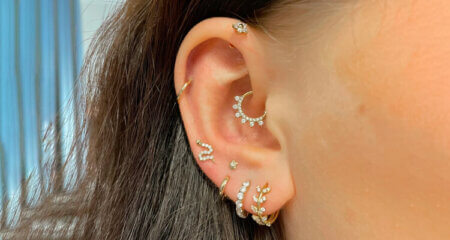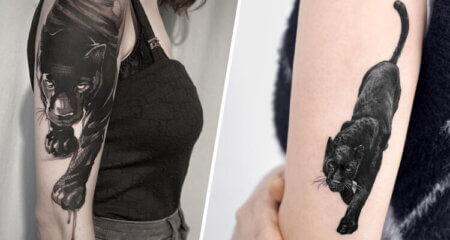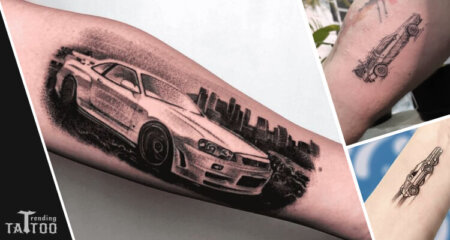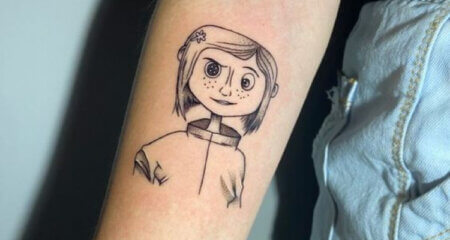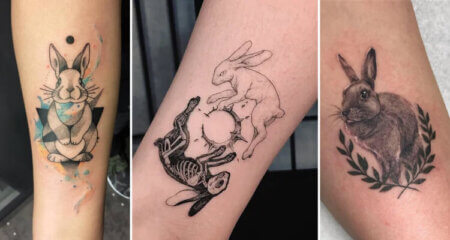
Do Piercing Affect Job Opportunities and Career
Posted on
In today’s Piercing Affect Job personal appearance is an important aspect that candidates must consider carefully. Among the various elements that make up one’s appearance, piercings have garnered mixed reactions from employers. While some organizations embrace individuality and self-expression, others adhere to more traditional and conservative norms.
As a result, piercing affect jobs opportunities and remains a topic of interest and concern for job seekers. This essay will delve into the nuances of this issue, exploring the factors that influence employers’ perceptions, the industries with varying attitudes, and the steps individuals can take to navigate the employment landscape while staying true to their unique selves.
How is your appearance perceived at work?
Personal appearance plays a significant role in shaping how individuals are perceived in the workplace. A polished and professional appearance can inspire confidence and respect from colleagues and superiors, while a disheveled or unkempt look may be perceived as unprofessional and lacking attention to detail. First impressions are often based on appearance, influencing initial judgments and interactions.
Additionally, personal appearance can convey a sense of self-confidence and professionalism, which can impact career advancement opportunities and professional relationships. While individuality and self-expression are valued in many workplaces, maintaining a neat and appropriate appearance remains crucial in projecting a positive and competent image in the professional world.
Are piercing Unprofessional
Whether piercings are unprofessional depends on the industry, company culture, and job role. In some conservative fields like finance or law, visible piercings Aftercare may be discouraged as they might be perceived as distracting or inappropriate. However, attitudes are changing, and many modern workplaces value employees for their talent and capabilities rather than their appearance.

Creative industries often encourage self-expression through piercings, while startups prioritize innovative ideas over conventional looks. Ultimately, it’s essential to research and understand the specific workplace’s policies and norms before displaying piercings. Awareness of the environment can help individuals make informed decisions while maintaining a professional image.
What industries accept facial piercings?
Facial piercings are more widely accepted in industries that value creativity, individuality, and self-expression. Creative sectors such as fashion, graphic design, and advertising often embrace unique appearances, including facial piercings, as they are seen as artistic expressions. Similarly, the entertainment industry, including music and film, tends to be open to diverse looks.
Additionally, certain tech companies and startups encourage a relaxed dress code and accept facial piercings among their employees more.Type of facial piercing : Dimple piercings Eyebrow Piercing. However, it is essential to note that even within these industries, the acceptance of facial piercings may vary from company to company, so researching individual company policies is still advisable.
What industries frown upon facial piercings?
Facial piercings are generally frowned upon in industries that adhere to more conservative dress codes and strongly emphasize professionalism and conformity. Traditional finance, law, and corporate sectors often have strict grooming policies discouraging visible piercings. Customer-facing roles in industries like hospitality and retail may also prevent facial piercings from maintaining a more uniform and polished image.
Healthcare and safety-sensitive industries prioritize hygiene and safety, which might lead to restrictions on facial piercings. Moreover, enterprises that deal with sensitive or conservative clientele may view facial piercings as unprofessional, potentially affecting client relationships and brand perception.
Effect of facial piercing
Facial piercings can have both positive and negative outcomes, depending on situations and individual perspectives. Positively, they allow for self-expression and can be an empowering form of identity and art. Facial piercings may foster authenticity and confidence in creative industries or among peers who value individuality.
However, visible facial piercings in conservative or corporate environments may be viewed as unprofessional or distracting, potentially impacting job opportunities and career advancement. Some individuals may face prejudice or stereotyping due to their piercings, leading to unfair judgments about their character or competence. Overall, the effect of facial piercing varies widely and is subject to personal, societal, and professional factors.
What piercings are more generally accepted?
Certain piercings are more generally accepted in various industries and social settings due to their subtlety and less intrusive appearance. Earlobe piercings are widely accepted and considered mainstream, even in conservative workplaces, as they are familiar and relatively unobtrusive. Nose studs or small nose rings are also becoming more socially acceptable and are often seen as fashionable rather than unprofessional.
Small and discreet lip or eyebrow piercings may also be tolerated in some industries, especially if they don’t draw excessive attention. Retainers or clear jewelry can make piercings less conspicuous when necessary. Less visible and smaller piercings tend to have broader acceptance in diverse environments.
How to hide piercings at work
Hiding piercings at work can be achieved through various methods to maintain a professional appearance. Wearing small and subtle studs or using flesh-colored plugs for Double Helix ear piercing can make them less noticeable. Nose piercings can be hidden with clear or skin-colored retainers. Lip piercings can be concealed with smaller jewelry or clear labret studs.
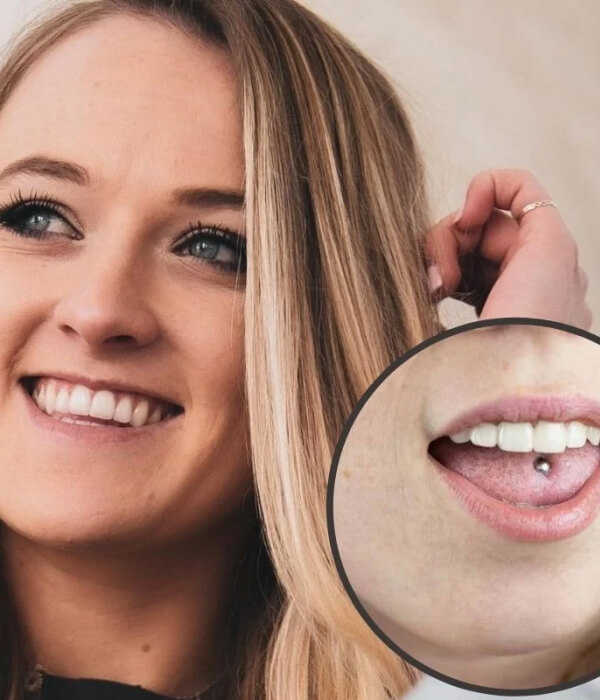
Using a clear retainer or wearing longer hairstyles for eyebrow piercings can help hide them. Covering clothing or accessories like scarves or collars can camouflage neck or chest piercings. It’s essential to ensure that any hiding methods align with the workplace’s dress code and policies so that a professional image is maintained.
How to minimize the effect of body art on your prospective job
Cover it
To minimize the impact of body art, mainly piercings, in future employment, consider covering them when necessary. If safe and allowed by company policies, consider leaving piercings at home during work hours and interviews. This approach helps project a more conventional and professional image, avoiding potential negative impressions on interviewers or colleagues.
Opt for subtle jewelry or retainers that can conceal facial piercings discreetly. Prioritize a polished appearance that aligns with the workplace culture, especially in conservative industries. While piercings can be a form of self-expression, being mindful of their visibility in professional settings can enhance job prospects and integration into the work environment.
Look for employment where appearance is insignificant
When seeking a job where appearance is unimportant, focus on industries or roles prioritizing skills and qualifications over physical appearance. Look for positions in creative fields, such as graphic design, writing, or programming, where individuality is valued. Additionally, some remote or freelance opportunities may be more lenient regarding appearance.
Research companies with inclusive and diverse cultures, as they are more likely to value talent over appearance. Certain positions in the tech industry, where skills are paramount, might also be more accepting of piercings and other body art. Emphasize your expertise and experience to find a work environment that appreciates your capabilities rather than your appearance. It’s a unique way to avoid piercing affect jobs.
Get body art that can be covered
When considering body art, opt for piercings that can be easily covered, as this provides flexibility in professional settings. Choose discreet locations, such as earlobes or nose studs, which can be hidden with hair or clothing when necessary. Avoid extreme piercings like vampire teeth or horns, as they may be considered unconventional and potentially impact future employment opportunities.

Instead, opt for subtle and tasteful piercings to adjust to diverse situations. Remember that maintaining a professional appearance is crucial, and having piercings that can be concealed allows you to express yourself outside of work while minimizing any potential impact on your career prospects.It’s a unique way to avoid piercing affect jobs.
Choose a small, noncontroversial design
When getting a piercing, consider choosing a small, noncontroversial design to ensure broader acceptance in professional settings. Opt for classic options like a simple stud for earlobe piercings or a tiny, discreet nose ring. Such minimalistic designs are less likely to draw unwanted attention and can be easily covered.
Avoid large or provocative designs that may be controversial in conservative work environments. By selecting a subtle and timeless design, you can express your style and personality while maintaining a professional appearance. Remember that a petite, noncontroversial piercing allows you to balance self-expression and career goals.
Remove it
If you find that a piercing negatively impacts your professional opportunities or workplace environment, consider removing it. Removing a piercing can be a practical solution to ensure a more conventional appearance and avoid potential discrimination or prejudice. While body art is a form of self-expression, prioritizing your career goals and maintaining a polished image might require sacrificing certain piercings.

It’s essential to weigh the significance of the piercing against your professional aspirations. Remember that you can still express your individuality outside of work while adjusting for a more suitable and successful career path.
FAQs
1. Can facial piercing hurt career?
There is a possibility that facial piercings can negatively affect job prospects, relying on the company culture and the industry. Some conservative industries may view visible facial piercings as unprofessional, potentially influencing hiring decisions. However, facial piercings might be embraced as self-expression in more creative and progressive fields.
Are there any industries that are more accepting of body art? Yes, creative industries like fashion, design, and entertainment often accept body art and piercings more. Additionally, some tech companies and startups prioritize skills and innovation over appearance, making them more open to individuality.
2. Can I use retainers to hide my piercings at work?
Using retainers or clear jewelry can help hide piercings during work hours. Retainers are particularly useful for facial piercings, as they are less noticeable and maintain the piercing’s opening.
3. How can I address concerns about my piercings during an interview?
Respond professionally and confidently if the interviewer brings up concerns about your piercings. You can explain your willingness to adhere to company policies and demonstrate your commitment to maintaining a polished appearance at work.
4. Should I disclose my piercings before a job interview?
It’s unnecessary to disclose your piercings before an interview unless directly asked about them. However, it’s crucial to research the company’s dress code and culture to ensure you present yourself appropriately during the interview process.
5. Can I negotiate piercings in my workplace?
In some cases, you can negotiate piercings in your workplace. If you’re already hired and want to display your body art, consider discussing your preferences with your employer. However, remember that this depends on company policies and the nature of your role.
6. Should I remove my piercings for client meetings?
When meeting with clients, following a more conservative appearance is advisable to maintain a professional image. If your piercings are visible and might distract or offend clients, consider removing them temporarily during meetings.
7. How can I gauge a company’s acceptance of body art?
Research the company’s online presence, social media, and employee reviews to understand its culture. Additionally, observe employees during the interview or workplace tour to see if body art is prevalent.
8. Are there specific types of piercings that are more universally accepted?
Generally, earlobe piercings are the most universally accepted due to their prevalence and subtle nature. Nose studs and small facial piercings are also widely accepted in various industries.
In conclusion, the impact of piercings on job opportunities remains a complex and evolving issue. While some industries and workplaces embrace individuality and self-expression, others uphold more conservative dress codes and may view visible piercings as unprofessional. Before displaying body art during interviews or at work, job seekers must carefully consider the industry, company culture, and specific job roles.
Concealing piercings when necessary or opting for more discreet designs can help balance personal expression and professional aspirations. Open conversations about workplace policies and cultural attitudes are crucial to fostering inclusive environments where talent and qualifications take precedence over appearance.

